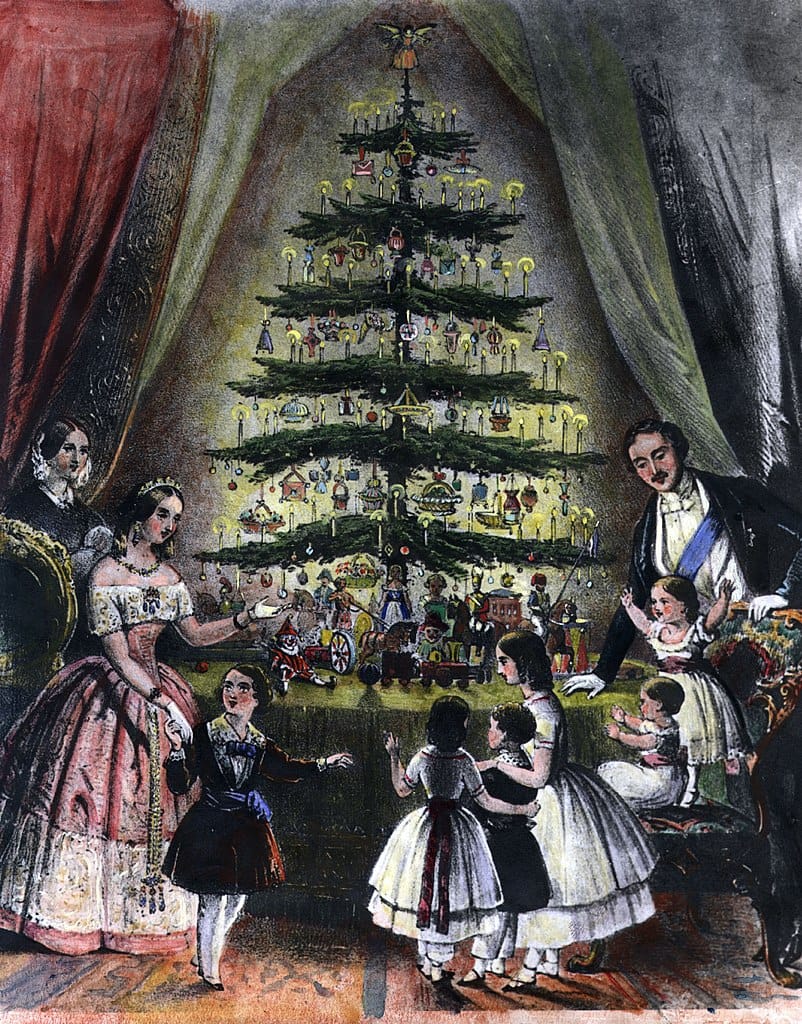Christmas / Xmas

(I’m reposting some older, seasonal articles on the feed’s off days. This article was first published on Wordorigins.org on 18 December 2023.)
Christmas has a rather straightforward and obvious etymology. It is Christ’s mass, the religious service and festival associated with Jesus’s birthday. The word dates to the late Old English period. The Old English cristesmæsse isn’t found in any extant text written prior to c. 1000, but it’s likely to be older and those older uses simply didn’t survive.
One of the earliest uses is by Wulfstan, the Archbishop of York who (d. 1023). The word appears in a short piece of his entitled Be cristendome (About Christianity) that outlines the payments a good Christian makes to the Church:
And leohtgescot gelæste man be wite to Cristes mæssan and to candelmæssan and to eastron, do oftor se, ðe wylle.
(And one should pay the light-fee as payment at Christmas and Candelmas and Easter, or more often if one desires.)
The leohtgescot (light-fee) was a contribution to keep the lights burning in the church, the medieval equivalent of paying the church’s electrical bill. (Yes, the irony of a text titled About Christianity being about tithes and offerings is not lost on the astute reader. Those modern televangelists begging for money are simply the latest in a long tradition.)
The abbreviation Xmas is not an attempt to remove the Christ from Christmas. The X got its start as the Greek letter chi, the first letter in Christ’s name. It was common practice in medieval manuscripts to abbreviate Christ’s name with an X or XP, the P or rho being the second letter. For example, in the entry for the year 1101, copied c. 1121–31, in the Peterborough manuscript of the Old English Chronicle we find:
Her on þisu[m] geare to xpes mæssan heold se cyng heanrig his hired on westmynstre.
(Here in this year at XP’s mass King Henry held his court in Westminster.)
The abbreviated form Xmas appears later. The OED has a 1551 citation for X’tenmas and a 1660 citation for Xtmasse, showing that the X is indeed an abbreviation of Christ. That dictionary has a citation for Xmas itself from 1721.
Sources:
Dictionary of Old English: A to G Online, University of Toronto, 2007, s. v. cristes-mæsse, n.
Oxford English Dictionary, third edition, March 2020, s. v. Christmas, n.; Xmas, n.; second edition, 1989, s.v. X, n.
Peterborough Chronicle for the year 1101 (Bodleian Library MS. Laud Misc. 636, fol. 74r). Digital Bodleian.
Wulftan. “Be Cristendome.” In Arthur Napier, ed. Wulfstan. Sammlung Englischer Denkmäler in Kritischen Ausgaben, vol. 4. Berlin: Weidmannsche, 1883, 310–11 at 311. HathiTrust Digital Archive.
Image credit: Unknown artist, 1848. Public domain image.